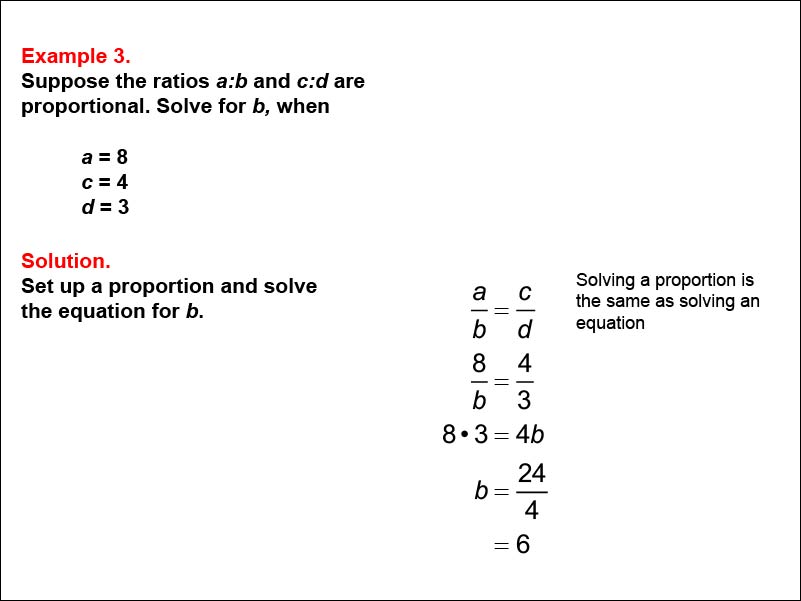
Display Title
Math Example--Ratios, Proportions, and Percents--Solving Proportions: Example 3
Display Title
Math Example--Ratios, Proportions, and Percents--Solving Proportions: Example 3

Topic
Ratios, Proportions, and Percents
Description
This example demonstrates solving for b in a proportion where a = 8, c = 4, and d = 3. We set up the proportion 8 / b = 4 / 3 and solve for b, resulting in b = 6. This problem shows how to find an unknown value in the denominator of a proportion.
Understanding ratios and proportions is crucial in mathematics and real-world applications. These concepts help in scaling, comparing quantities, and solving problems in fields like physics, engineering, and economics. This collection of examples aids in teaching by presenting diverse scenarios, allowing students to see how proportions apply in various contexts.
Exposure to multiple worked-out examples is essential for students to fully grasp proportions. Each example reinforces the core concept while introducing slight variations, helping students develop problem-solving skills and recognize patterns across different types of proportion problems.
Teacher's Script: "In this example, we're solving for b when it's in the denominator. Let's set up our proportion and cross-multiply to solve. Notice how we can use division to isolate b. This method will be useful in many proportion problems you'll encounter."
For a complete collection of math examples related to Solving Proportions click on this link: Math Examples: Solving Proportions Collection.
| Common Core Standards | CCSS.MATH.CONTENT.6.RP.A.3, CCSS.MATH.CONTENT.7.RP.A.2, CCSS.MATH.CONTENT.8.EE.B.5, CCSS.MATH.CONTENT.7.RP.A.2.B, CCSS.MATH.CONTENT.7.RP.A.2.C |
|---|---|
| Grade Range | 6 - 8 |
| Curriculum Nodes |
Algebra • Ratios, Proportions, and Percents • Proportions |
| Copyright Year | 2013 |
| Keywords | solving equations, solving proportions |